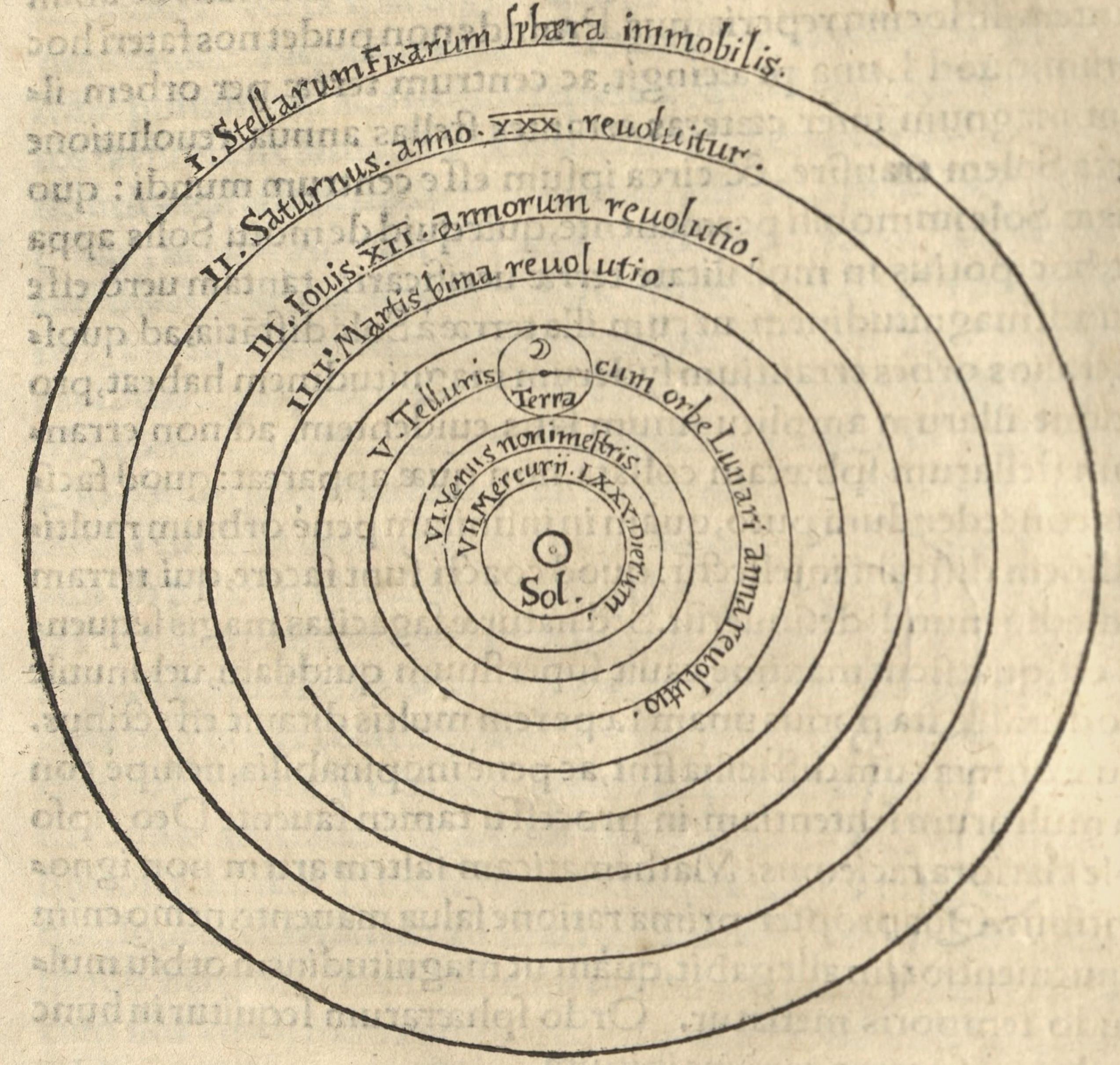The Copernican Revolution
The slides for this week's lecture can be downloaded here
This lecture, and the four others before reading week, are about major changes in natural knowledge that were centred on the seventeenth century and that are usually associated with the scientific revolution. In these lectures we tie intellectual transformations to the broader historical changes outlined in last semester's lectures, changes such as the Protestant Reformation, the technical revolution, and voyages of discovery. We begin with the changes in cosmology and astronomy that are sometimes called the 'Copernican Revolution' after the Polish astronomer who, in a book published in 1543, made the first sustained case for the thesis that the sun rather than the Earth lies at the centre of the cosmos. The Copernican revolution was not just about a new theory of the heavens but also about new sources of patronage for science, new philosophies such as Platonism, and practical concerns such as the reform of the Catholic calendar.
Task
Read the Donahue chapter to get a sense of long-term changes in astronomy in early modern Europe. Then read the extracts from Copernicus' 1543 book, bearing in mind that the Letter to the Reader was written, not by Copernicus, but by the German theologian Andreas Osiander. Consider these questions:
Was Copernicus' On the Revolutions of the Heavenly Orbs a revolutionary book?
How does the book reflect the wider culture of the Renaissance?
Essential readings
Donahue, William. 'Astronomy' in CHS3.
Copernicus, Nicolaus. Letter to the Reader, and Preface and Dedication to Pope Paul III, from On the Revolutions of the Heavenly Orbs (1543), trans. Charles Glenn Wallis
Copernicus, Nicolaus. Book 1, chapters 4-10, from On the Revolutions of the Heavenly Orbs -- note that you do not need to read chapters 1-3 or chapter 11, though you are welcome to do so and you will find them in the pdf. Chapter 10 is longer and more complex than the others, but well worth reading if you are able.
Further reading
Kuhn, Thomas. The Copernican Revolution: Planetary Astronomy in the Development of Western Thought. Cambridge, MA: Harvard University Press, 1985 -- especially chapters 1 and 2 (on ancient astronomy), chapter 5 (on Copernicus), and chapter 6 (on Tycho, Kepler and Galileo).
North, John David. The Fontana History of Astronomy and Cosmology. London: Fontana Press, 1994. Print. Fontana History of Science -- especially chapters 11 (Copernicus), 12 (Brahe, Kepler, Galileo) and 13 (Kepler and Newton).
Westman, Robert S. “The Astronomer’s Role in the Sixteenth Century: A Preliminary Survey.” History of Science 18 IS - 2 (1980): 105–147–147 - especially sections 1-4.
Gingerich, Owen. “‘Crisis’ versus Aesthetic in the Copernican Revolution.” Vistas in Astronomy 17.1 (1975): 85–95.

